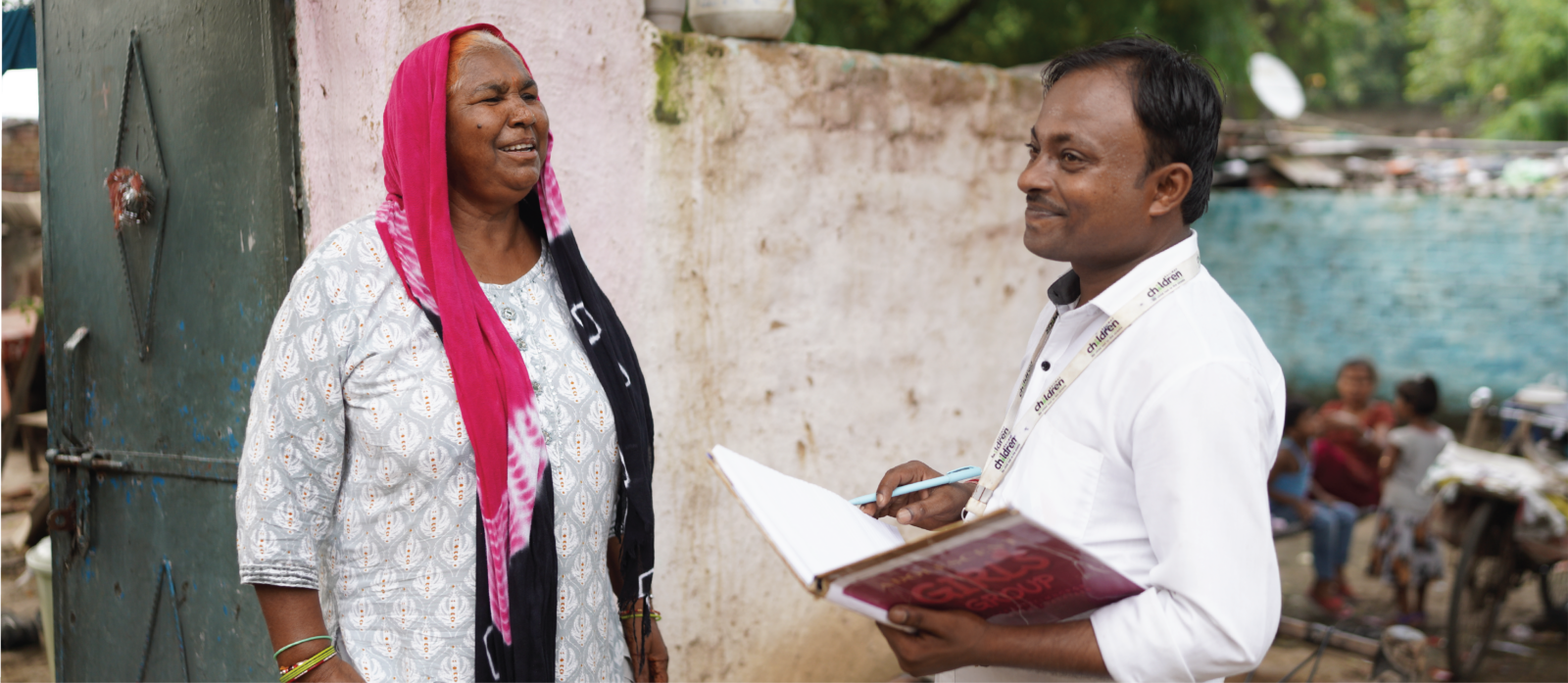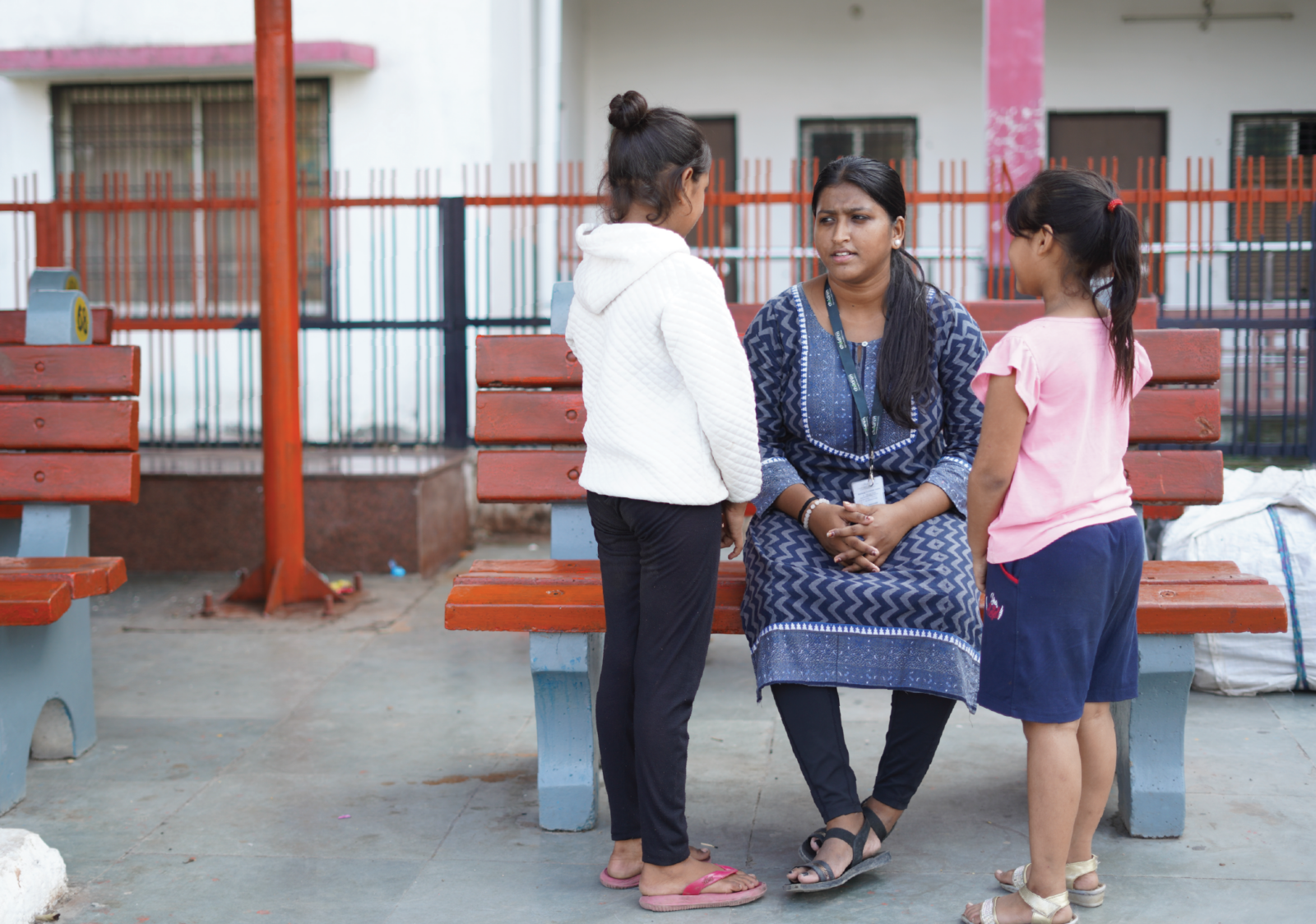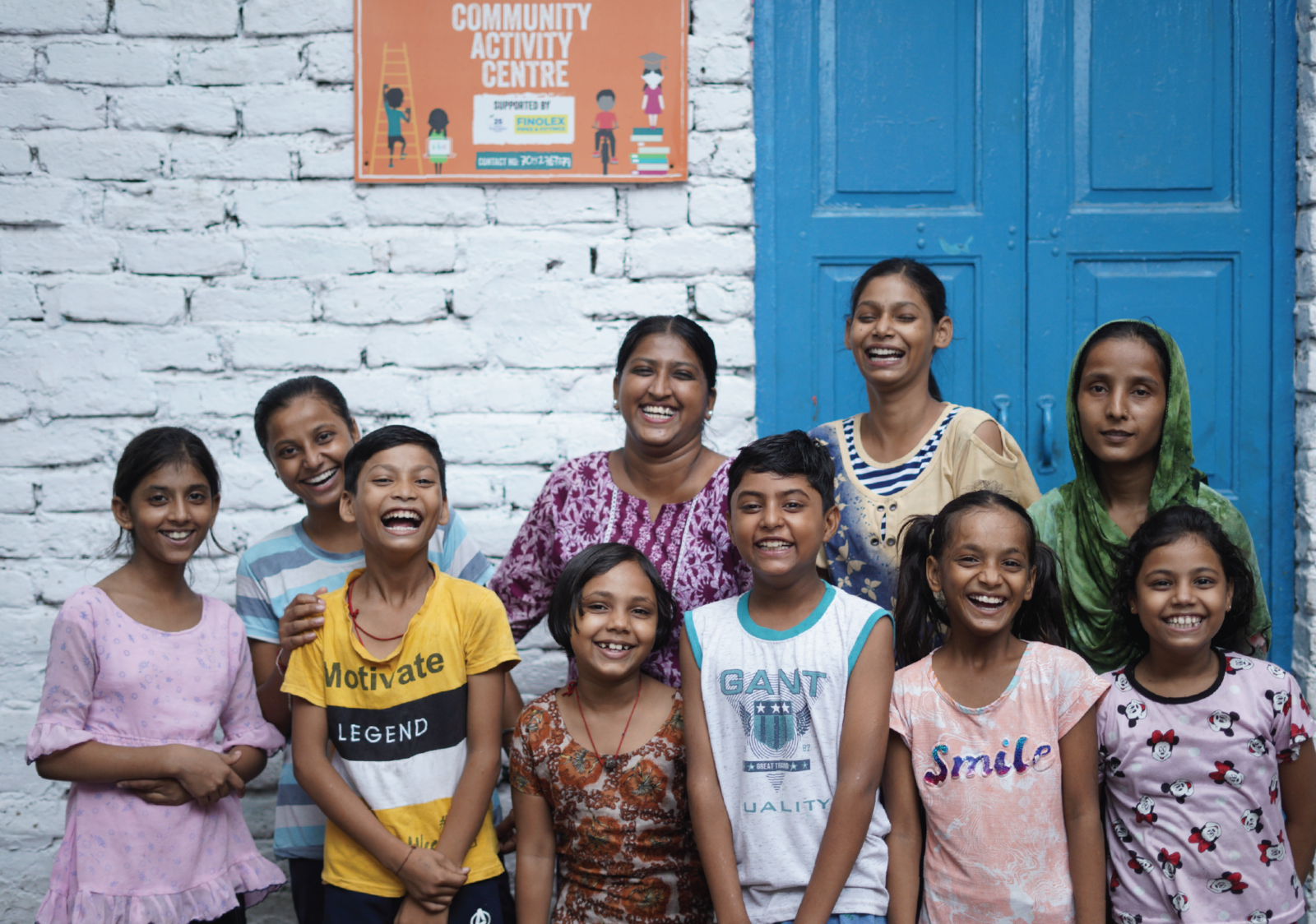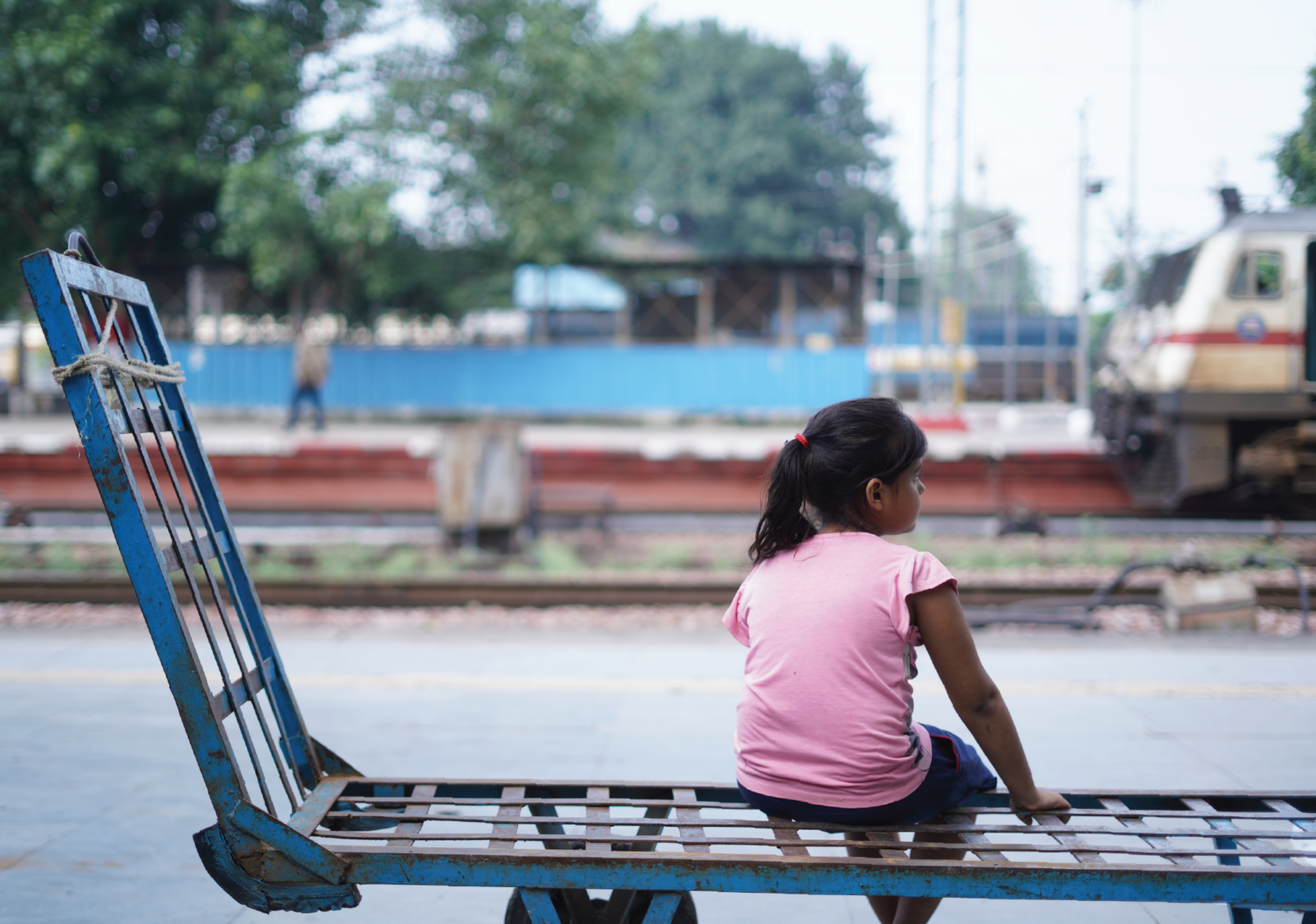In the heart of Chandmari, a community near Ghaziabad station known for its deep-rooted struggles with poverty and child labour, a quiet revolution unfolded some time ago, which was led by a fiery young girl who refused to give up on her education. This is her story of protection and rehabilitation.
When team Railway Children India (RCI) began its outreach in this area, a baseline survey revealed a harsh reality: many children were engaged in ragpicking, collecting discarded bottles at railway stations, and even boarding and alighting from moving trains to earn a few rupees a day. Among them, Dhriti’s story stood out.
Eleven-year-old Dhriti was one among many, yet different in her resolve.
During the early days of community engagement, team RCI established a Child Activity Center in Chandmari to offer children a safe space to learn and play. Curious about what learnings awaited her in this delightful new space, Dhriti made her way to the center. Here, with the help of bhaiyya and didi, she discovered her love for books, arts, and all things academic.
However, her path was far from easy. Her parents, struggling to survive, insisted she continue ragpicking to support the family. When Mr. Roshan Kumar, Community Mobilizer at Chandmari, spoke with her parents he was met with frigid reality in their response. “The nearest public school is so distant. Even if we wish to, we cannot send her there. Private school is out of the question. It will be more helpful if she works and contributes to our income instead.”
But Dhriti had far from give up.
She negotiated with her parents, promising that she would continue ragpicking after school hours if they allowed her to attend classes during the day. Determined to change her circumstances, she took on both roles: student by day, ragpicker by evening, using her earnings to contribute toward school fees.
“To begin with, we backed her resolve by facilitating her enrolment in a nearby school,” shares Mr. Kumar. Over 60 days thereafter, team RCI supported Dhriti and her family with varied aids, including a school kit and ration kit.
Mr. Kumar proudly elaborates “Over time, Dhriti not only continued going to school regularly but also emerged as a celebrated peer influencer of the community, bringing eight to nine other children like her to center and urging our team to enroll them in schools as well.”
Leaving a source of income and pursuing her love for learning must have been a challenging route for Dhriti. When asked if she faced any hiccups in this journey, Mr. Kumar affirms, “Yes, she did. One day, we received a call from Dhriti’s school informing us that she had not attended school for the past 4 days.”
“We could confirm this as she had not visited the center either. However, Dhriti turned up the next day and informed us that she had to resume ragpicking for a few days to collect money for her school fees, as her parents couldn’t pay the fees.”
This incident stood as a reminder that progress isn’t always linear, and support systems need to be consistent and relentless. With RCI’s intervention and Dhriti’s undying resolve she returned to learning, leading, and even growing stronger with the Karate classes offered at the community.
What followed next was a defining moment in Dhriti’s journey.
After weeks of training, Dhriti participated in a Karate championship, where RCI led over 80 children like her to participate. In a room full of cheers, nerves, and determination, Dhriti won a bronze medal. Seeing her daughter return home with a medal around her neck, Dhriti’s mother needed no further convincing. The potential and promise of a bright future that she once questioned now stood bright as the day before her.
Thereafter, not only did the family manage to gather the amount for Dhriti’s school fees but they also enrolled their younger son in school. In a home where education once seemed out of reach, the medal personified a transformative shift, where neglecting education turned to championing children’s growth. Dhriti now continues to go to school regularly, and her parents, moved by her resilience and talent, have vowed never to let her return to the throes of ragpicking again.
Chandmari had long been known for child labour and substance abuse, with children at constant risk of injury and exploitation. But thanks to sustained efforts by RCI, supported by peer leaders like this young girl, the change was visible.
In just one year, RCI helped resolve 11 child labour cases from this community alone. Thirty-two children were enrolled in schools, and more were brought into structured learning and activity programs.
Like Dhriti’s every story was not just about escaping child labour but about reclaiming childhood, reshaping futures, and reminding us that change often begins with one determined voice.







